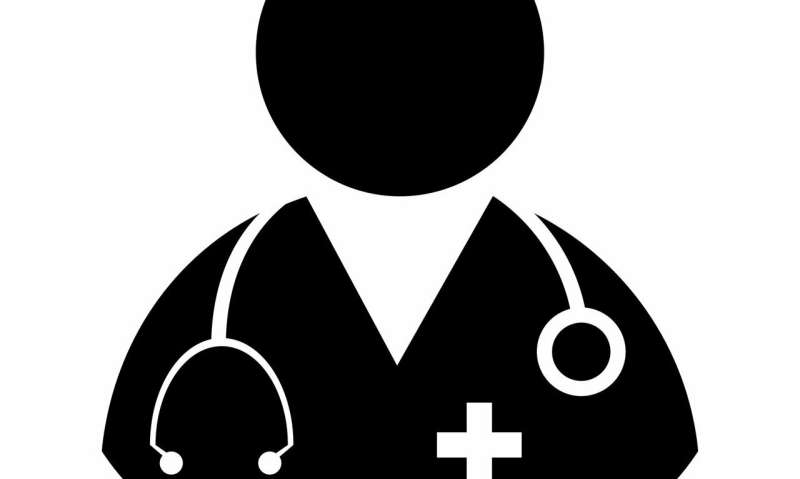Safety-net clinicians' caseloads received reduced merit-based incentive payment scores

A team of researchers led by Kenton Johnston, Ph.D., an associate professor of health management and policy at Saint Louis University's College for Public Health and Social Justice, conducted a study to investigate how outpatient clinicians that treated disproportionately high caseloads of socially at-risk Medicare patients (safety-net clinicians) performed under Medicare's new mandatory Merit-Based Incentive Payment System (MIPS).
Their findings, "Clinicians With High Socially At-Risk Caseloads Received Reduced Merit-Based Incentive Payment System Scores," were published online Sept. 8 in Health Affairs.
The researchers found that clinicians treating high (top quintile) caseloads of Medicare patients dually-enrolled in Medicaid had performance scores 13.4 points lower than clinicians treating low (bottom quintile) caseloads of such patients, on a scale from 0-100. Clinicians with high caseloads of dually-enrolled patients were 99 percent more likely to receive a negative payment adjustment, and were 52 percent less likely to receive an exceptional performance bonus payment, than their peers with low caseloads of such patients.
The study examined 2019 MIPS performance data for 510,020 clinicians.
"The MIPS appears to be regressive. Low-resourced and safety-net practices located in poor areas have higher rates of payment penalties and lower rates of payment bonuses than high-resourced practices in wealthy areas," Johnston said. "Thus, the MIPS may end up discouraging clinicians from practicing in poor areas and, as a result, exacerbate existing health disparities. I doubt this is what the Centers for Medicare and Medicaid Services (CMS) intended when designing the program. However, if this issue is not addressed by CMS, the MIPS may unintentionally widen care and health disparities among rich and poor Medicare beneficiaries."
MIPS, which is authorized under the Medicare Access and CHIP Reauthorization Act, is a mandatory pay-for-performance program for clinicians participating in Medicare in the outpatient setting. Clinician performance under MIPS looks at quality of care, meaningful use of electronic health records, improvement activities for patient care processes and cost.
The authors also assessed the potential future impact of the Complex Patient Bonus, to be implemented by Medicare in 2021 to better reimburse clinicians who treat high caseloads of socially-at-risk patients. The authors found that had the Bonus existed in 2019 it would have had very little impact on the payment disparities suffered by clinicians with high caseloads of socially-at-risk patients. Thus, the Complex Patient Bonus appears unlikely to mitigate the most regressive effects of the MIPS on safety-net clinicians.
More information: Kenton J. Johnston et al, Clinicians With High Socially At-Risk Caseloads Received Reduced Merit-Based Incentive Payment System Scores, Health Affairs (2020). DOI: 10.1377/hlthaff.2020.00350



















